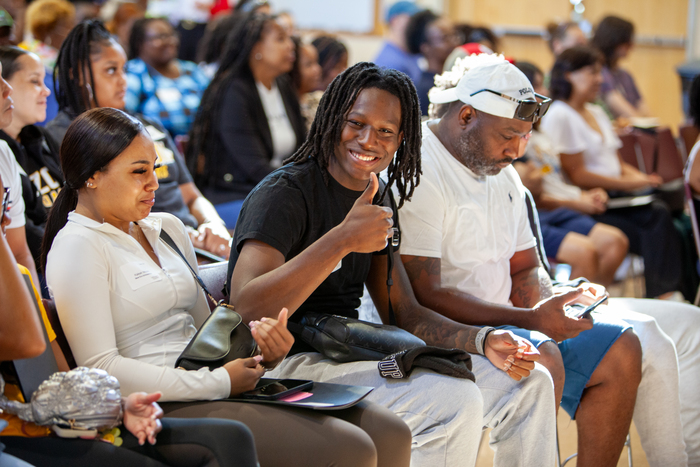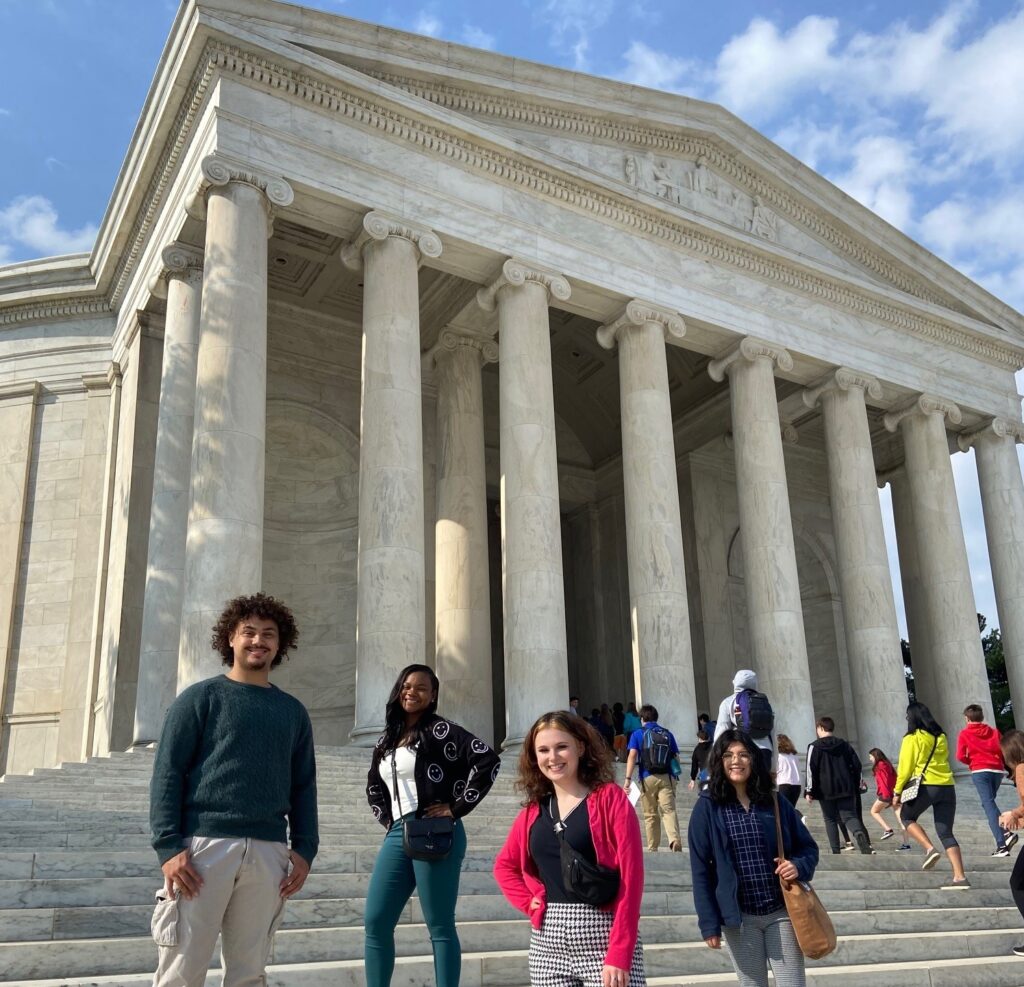We have work to do. Political processes at the state and federal level are quickly bankrupting and privatizing higher education. Colleges are competing to enroll as many students who can pay as much of the bill as possible; willingly or not, this practice is shifting our understanding of education from societal and common good to market-based commodity.
Last month, “College Isn’t For Everyone” was the somewhat surprising headline of a Words of Faith blogpost. I heard from quite a few of you:
 |
Those folks who say “college is not for everyone“‘ should know that research has always shown that people who are college educated not only make more money, but also live longer, are healthier, have better jobs, are more tolerant, and have more enjoyment and better relationships than those who do not. |
| I’ve started to resent this “Is college worth it?” question. I know the financial burdens of college but I also know that question puts a first- generation student in the crazy position of pretending to know which jobs will be made possible by a degree. The same is not asked of students from families with wealth. The degree is a lens through which you will see things when you are out in the working world; it is NOT a prescription for the exact job you’ll get. College is an investment in self – not work. |  |
 |
I’ve given some thought to the question of the worth of a degree as my son approaches his senior year of high school. I believe that college provides options. Because I have a degree I’ve had the privilege to be what I needed to be for my family, from stay at home mom to a great career in corporate America. It is the gift of choice. |
| College is worth it, beyond the credentials or potential earnings. It’s the opportunity to be exposed to people, cultures, ideas that we may never encounter if we stay in our circles. To me, that’s the true value of an education. It informs and transforms who we are and how we see the world. Ultimately, it makes us educated citizens. |  |
Some days, I can see the fatigue in the faces of our staff. In addition to working with students whose dreams are counterbalanced by stark economic realities, staff are also responding to the overt and sometimes coded debate about whether college is for everyone, whether it is worth it at all, and what kind of “skin in the game” (this is among our least favorite phrases ever) low-income students should have. So, we are doing what we must to get ahead of this debate, turning exhaustion into inquiry.
Scholarship Foundation staff will be in discussion and reading research and commentary on key questions about the importance of higher education, and just the titles of the initially selected readings will intrigue you:
What is the purpose/value of higher education?
- The Day the Purpose of College Changed
- The Perils of Trashing the Value of College
Skills and earnings – Are colleges creating success?
- U.S. Colleges are Separating Into Winners and Losers
- Skills, Education, and the Rise of Earnings Inequality Among the ‘Other 99 percent’
- The For-Profit Postsecondary School Sector: Nimble Critters or Agile Predators?
What are the relationships between higher education and democracy?
- The Paradox of Democracy and Higher Education
- Thinking Dangerously: The Role of Higher Education in Authoritarian Times
What are the relevant boundaries and possibilities of the work of The Scholarship Foundation?
- “The Social Utility of Scholarships”
- Comments from SF Grads and Board Alumni
PLEASE HELP – Do you have something to say on this topic? Do you have a reading to recommend to us as we continue this honest (if exhausting) exploration?
If so, please talk with me or email me – faith@sfstl.org
– Faith Sandler





